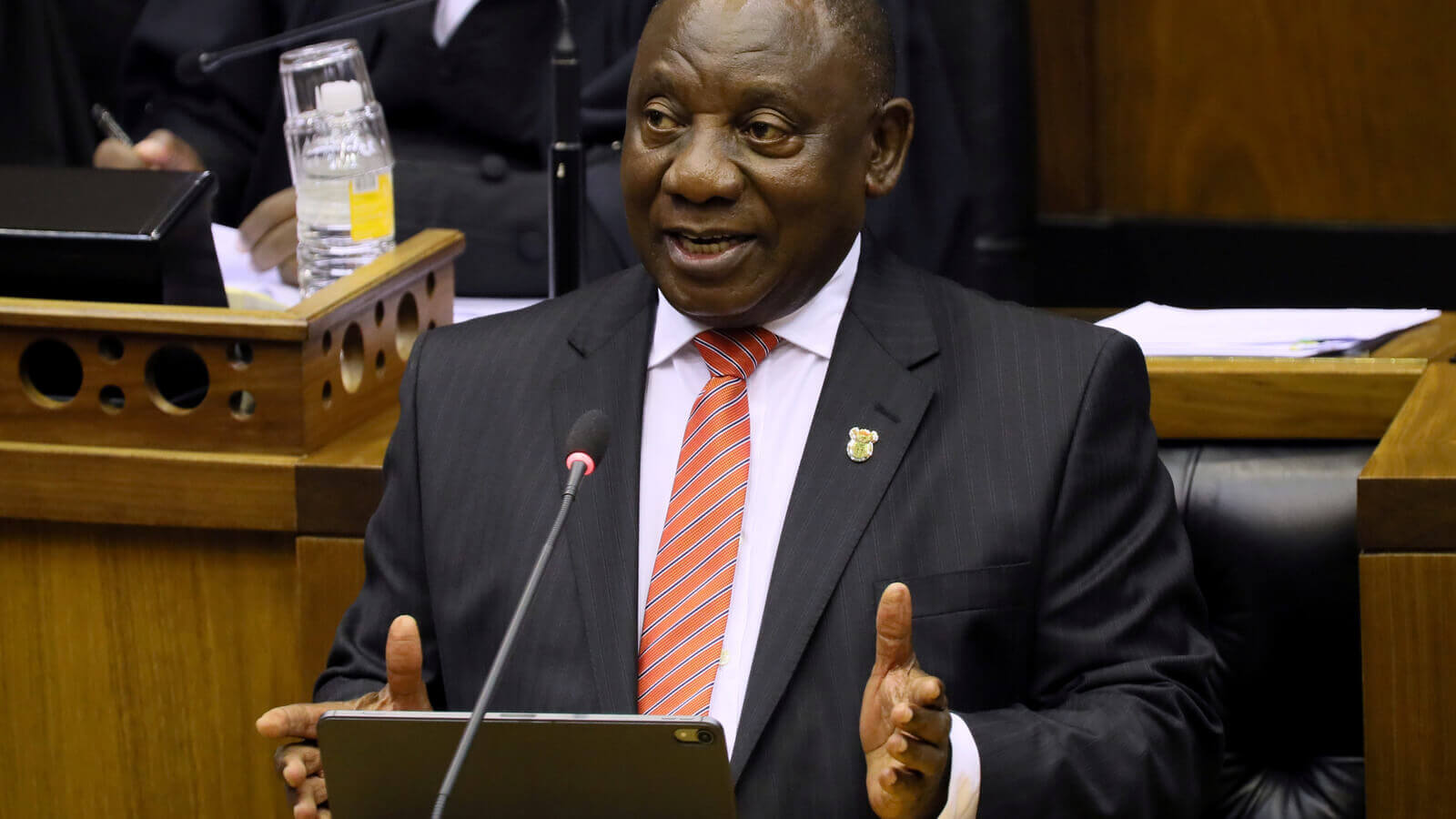In an address to the G20, the UN, the World Bank, IMF, and the EU Commission last week, the African Union (AU) Chairperson, Cyril Ramaphosa, urged the countries around the world to lift sanctions against Zimbabwe and Sudan to allow them to better combat the coronavirus crisis. The South African President, Ramaphosa, believes that the continued onslaught of sanctions against these countries impede their ability to “respond adequately to the pandemic and save lives”.
He made the appeal during a virtual gathering of the AU’s Bureau of Heads of States and Government, which comprises of the presidents of Kenya, Egypt, Mali, the Democratic Republic of Congo, and South Africa. The heads of state of Ethiopia, Rwanda, Senegal, and Zimbabwe were also present at the meeting. AU Commission Chair Moussa Faki Mahamat attended the gathering as well.
The US imposed sanctions against Sudan as it accuses it of “harboring terrorists”. Sanctions on Zimbabwe stretch as far back as Barack Obama’s tenure as President, who implemented the harsh measures as a punishment for political instability in the country. In March of this year, the US imposed sanctions on Zimbabwe’s State Security minister and its ambassador to Tanzania for their role in the killing and abduction of protestors.
Secretary of State Mike Pompeo called on Zimbabwe to “immediately end state-sponsored violence including against peaceful protestors” and investigate human rights abuses. His sentiments were echoed by Deputy Treasury Secretary Justin Muzinich, who said that the Trump administration will hold Zimbabwean ‘elites’ “accountable […] for their repressive and violent rule”.
State Security Minister Owen Ncube is a close ally of President Emmerson Mnangagwa and stands accused of ordering the abduction and torture of government critics during protests in 2019. Zimbabwean Ambassador to Tanzania Anselem Sanyatwe, a former commander of the presidential guard, is alleged to have deployed soldiers to attack unarmed protestors, resulting in the death of six civilians following the 2018 election.
The US also renewed sanctions against Zimbabwe for human rights violations by security forces and not implementing adequate political reforms. The European Union, Australia, Canada, and New Zealand have imposed sanctions on Zimbabwe for roughly 20 years over human rights violations and electoral fraud.
Amid the ongoing pandemic, it is expected that Africa will lose at least 20 million jobs across the formal and informal sectors. Ramaphosa predicts that exports will decline, commodity prices will fall, currencies will become more unstable, and many companies will be forced to shut down.
Thus, the AU is also seeking $44 billion in debt relief, a suspension on interest payments, and a stimulus package of $100-150 billion. While G-20 states have by and large agreed to deferrals and cancellation of interest payments, they are less willing to accede to debt cancellation.
In the absence of significant assistance from the international community, the AU’s Bureau of Heads of State and Government has created the Africa COVID-19 Fund, but has only raised $12.5 million so far. Given that Africa has recorded an 884% rise in COVID-19 cases over the last month, and countries like Egypt have extended their states of emergency by three months, the continent needs economic relief, and fast.
Image Source: Council on Foreign Relations
African Union Calls for Debt Relief and Suspension of Sanctions Amid COVID-19 Crisis
AU Chairperson Cyril Ramaphosa believes sanctions impede the countries’ responses.
April 29, 2020

